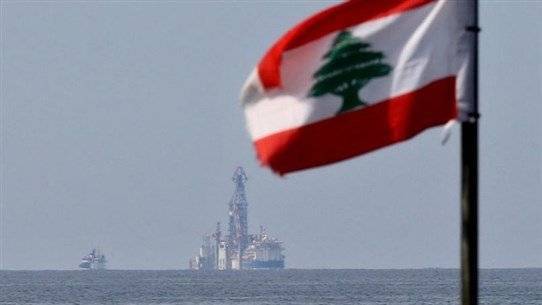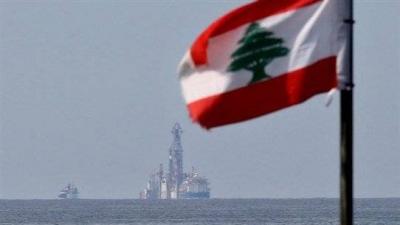Amidst all the developments and changes in the political landscape on the eve of President Michel Aoun's term ending, and following the first session for electing a new president, Progressive Socialist Party leader Walid Jumblatt clarified the issues at hand and how to address them. Jumblatt stated: "I do not consider Michel Moawad a challenge candidate; he is the son of martyr Rene Moawad, and we want a president who addresses the major contentious issues through dialogue." He emphasized, "We will remain with Moawad but are open to other names in coordination with him. There are many qualified candidates such as Salah Hani and Shibli Melhem."
Regarding oil and border demarcation, he stressed the necessity of "establishing a sovereign fund to preserve the revenues from gas extraction and sales, fearing that in the absence of this fund, some may exploit this matter through affiliated companies." He expressed optimism, "because we have achieved what President Nabih Berri has been advocating for over the past ten years, ensuring that Qana falls within the Lebanese economic borders, and we have separated the maritime line from the land line."
Jumblatt also raised the issue of land borders, saying, "Let us request from the Syrian state the demarcation of borders. Bashar al-Assad previously stated that Shebaa Farms and Kfarshouba are not Lebanese; let this matter be resolved through land demarcation." On the governmental front, Jumblatt revealed that "the Free Patriotic Movement has obstructed the formation of the government, wanting to replace some ministers with provocative individuals and setting its own conditions," adding that "we will not participate in the government and do not want to name anyone, nor for others to name on our behalf." Commenting on naming a replacement for the Minister of Displaced Persons, he said, "They were defeated in the elections; how can they return to the government?"
While considering Aoun's policies to be "vindictive," he called for accountability for his son-in-law regarding the electricity file, stressing that "the IMF is a mandatory route, contingent upon implementing reforms; without them, we will remain in place and billions will evaporate just as they did before."
Returning to the current issue, away from skeptical atmospheres regarding Lebanon's ability to retain its oil and gas wealth, and amidst discussions about making concessions in favor of the other party during maritime border negotiations with Israel, the meeting "Wheat and a Half," as termed by President Nabih Berri in Baabda, was held with President Michel Aoun, Prime Minister Najib Mikati, and the technical committee tasked with following this file and providing notes on it if necessary, especially after Lebanon received the American proposal, to eliminate doubts and ensure that matters are proceeding smoothly. The atmosphere of optimism relayed by Berri at the end of the meeting is evidence of the proper path taken by these negotiations over the past ten years, the framework agreement reached with the American side, and the negotiations that followed in Naqoura until their suspension, which led to the appointment of U.S. mediator Amos Hochstein in February to continue this file. The comfort conveyed by Deputy Speaker Elias Bou Saab indicates that matters are moving toward positive conclusions, as per his statement that the "devils hiding in the details" no longer affect the implementation of the agreement.
Sources monitoring the discussions that occurred in the Baabda meeting and the notes added to the draft agreement indicated through "Al-Anbaa" electronic media that these were purely technical and related to minor details and inquiries regarding the points adopted in the demarcation process in the form it arrived at, which are far from the political input. What the Lebanese side hopes is that the American mediator will incorporate or at least provide technical explanations for the necessity of adopting them and that he can persuade the Israeli side regarding them. The sources anticipated that the agreement would be signed by the end of the week or early next week at the latest.
Development and Liberation bloc member MP Fadi Alama mentioned in a conversation with Al-Anbaa electronic media that what he heard about positive atmospheres confirms that the Lebanese response to the American paper will be submitted within hours to the American mediator; similarly, the positive atmosphere relayed by Bou Saab should not lead to excessive optimism, as we are dealing with a third party that employs maneuvering tactics, while the Lebanese side has been very clear in its proposals. He noted that the atmosphere conveyed to the Lebanese side was good, as were the observations of the technical committee, which are progressing well. It should not be forgotten that the agreement is not of recent origin; it comes after ten years of negotiations to arrive at its current form. The war between Ukraine and Russia may be a fundamental factor for its implementation at this time due to Europe's need for gas. We must take advantage of this atmosphere while maintaining Lebanon’s interests."
There are crucial hours ahead concerning this vital file, which will constitute a milestone in modern Lebanese history, provided that Lebanon invests in it wisely, particularly by establishing the sovereign fund for oil, as called for by Walid Jumblatt.




